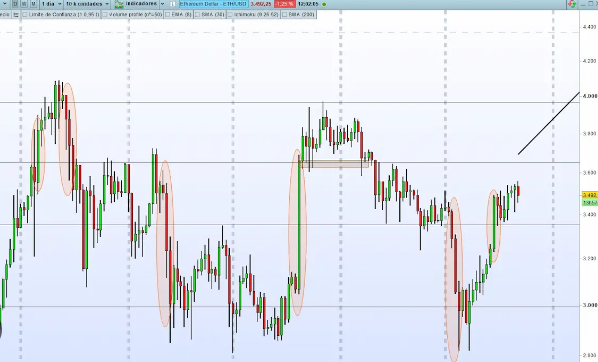How to Trade Forex with a Small Account
Trading forex with a small account can be challenging, but with the right approach and risk management strategies, it’s still possible to make meaningful profits. Here are some tips on how to trade forex with a small account:
- Choose a broker with low minimum deposit requirements: Look for a reputable forex broker that allows you to open an account with a small initial deposit. This will give you the opportunity to start trading even with limited capital.
- Utilize leverage wisely: Leverage allows you to control larger positions with a smaller amount of capital. However, it’s crucial to use leverage responsibly. Higher leverage increases the potential for profits, but it also magnifies losses. Consider using lower leverage ratios to minimize risk.
- Focus on risk management: With a small account, it’s essential to prioritize risk management. Determine the maximum amount you’re willing to risk on each trade, typically a small percentage of your account balance. Use stop-loss orders to limit potential losses and avoid overexposing your account to a single trade.
- Choose currency pairs wisely: Certain currency pairs, such as majors like EUR/USD or GBP/USD, tend to have tighter spreads and higher liquidity. These pairs are generally favored by traders with smaller accounts as they offer better trading conditions and reduced transaction costs.
- Start with a demo account: Before trading with real money, practice with a demo account. This allows you to familiarize yourself with the forex market, test trading strategies, and gain confidence without risking any capital.
- Start small and be patient: Begin with smaller trade sizes to manage risk effectively. As your account grows, you can gradually increase your position sizes. Don’t rush to make large trades; focus on consistent, controlled growth over time.
- Emphasize quality over quantity: Instead of taking multiple trades simultaneously, focus on high-quality setups. Look for clear entry signals and strong market conditions to maximize the probability of success. Being selective in your trades can help maintain discipline and avoid unnecessary losses.
- Monitor market news and economic indicators: Stay informed about market news, economic data releases, and geopolitical events that may impact currency movements. Understanding these factors can help you make more informed trading decisions and potentially capitalize on market opportunities.
- Continuous learning: Forex trading is a dynamic field, and it’s important to stay updated with industry trends and strategies. Invest time in learning and improving your trading skills through books, courses, webinars, and other educational resources.
Remember, trading forex with a small account requires discipline, patience, and effective risk management. Focus on preserving capital, developing a solid trading plan, and gradually growing your account over time. With consistent effort and a cautious approach, you can build your trading skills and potentially increase your account size.














Post Comment